![]() — หน้าแรก — เกาะติดข่าว
— หน้าแรก — เกาะติดข่าว
ข่าวเศรษฐกิจและธุรกิจประจำสัปดาห์
-
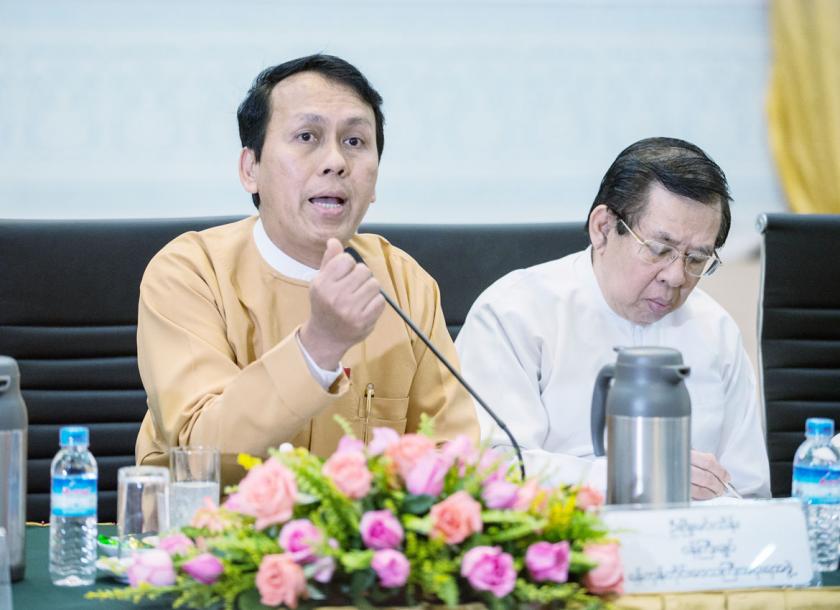
Investor interest in the New Yangon City project from China, South Korea, and ASEAN has been increasing and the project is expected to attract more FDI (U Phyo Min Thein, Chief Minister of Yangon Regional Government)
Since its launch in early April, investor interest in the New Yangon City project from China, South Korea and ASEAN has been on the rise, Yangon Chief Minister U Phyo Min Thein said during a press conference at the 2018 Yangon Investment Forum on April 20. The Yangon Region Government is now courting foreign direct investments to develop the project. So far, interest in providing the infrastructure needed for the development of New Yangon City has been particularly high, U Phyo Min Thein said. There have already been proposals to construct two bridges, which will provide access to the new city as well as link the city to the main roads connecting to the rest of Yangon. Others have also proposed to construct new roads in the city. Meanwhile, there has also been a request to lease over 2,000 acres of land for development within the new city, U Phyo Min Thein said. The chief minister did not provide the names of the companies. -
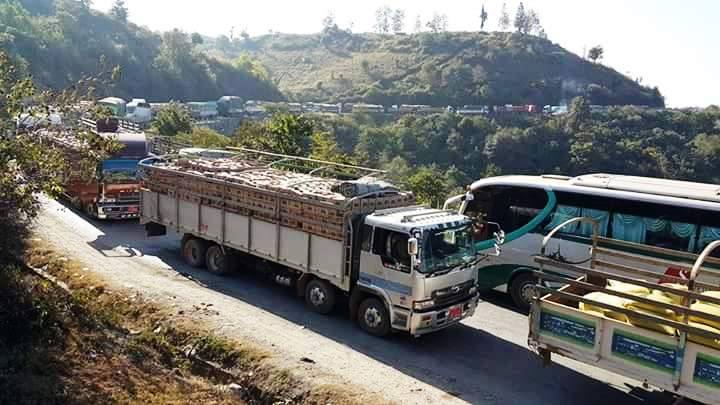
Potential sites will be chosen to build a Myanmar- China border trade cooperation zone under an agreement on the establishment of a bilateral border trade cooperation zone between the two countries
Potential sites will be chosen to build a Myanmar-China border trade cooperation zone, according to the Ministry of Commerce. “Our Head of State signed an agreement on the establishment of a bilateral border trade cooperation zone during a visit to China in May last year. Under the agreement, we studied potential sites,” said Yan Naing Tun, director general of Trade Department of the Commerce Ministry. “First, both countries must choose a site to build the zone. In this process, an agreement is necessary. The previous agreement is a memorandum of understanding. After the agreement has been signed, we will go according to the process and procedures,” he added. -
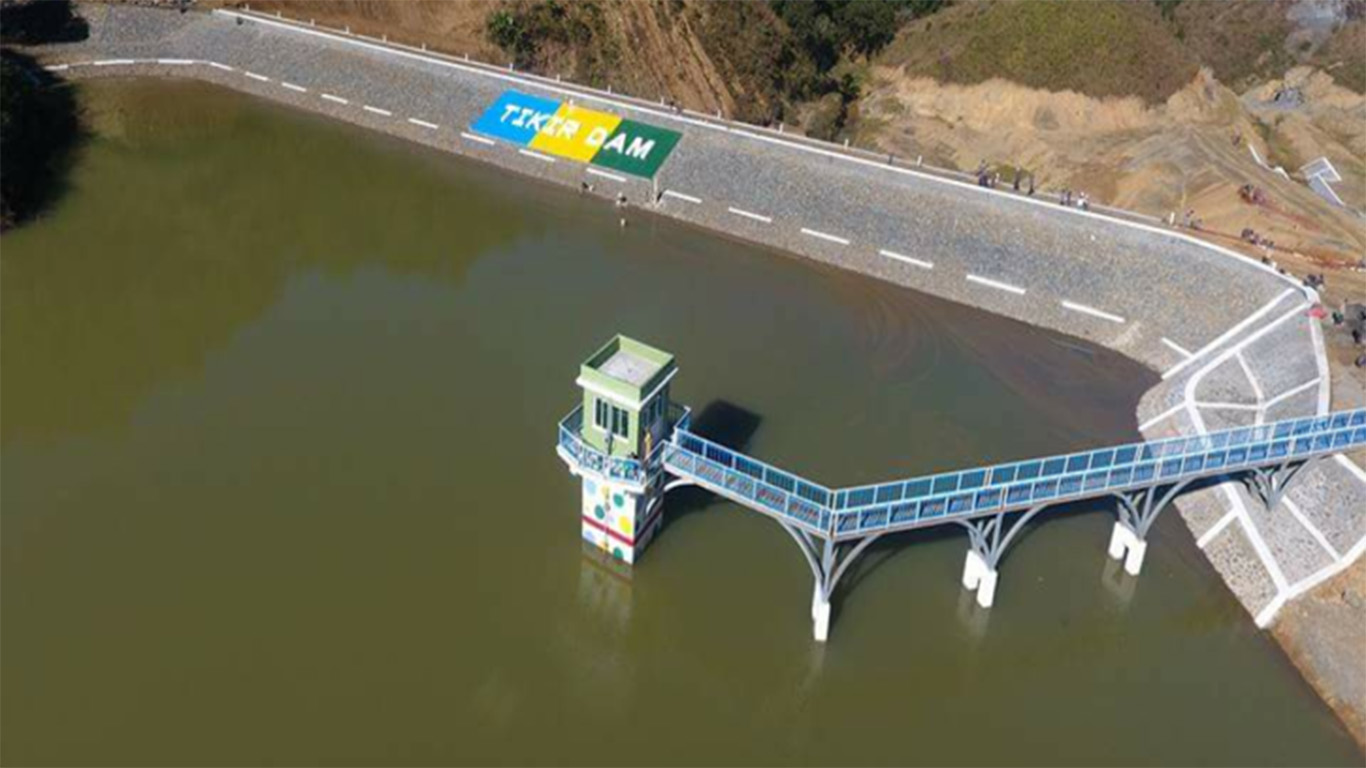
Agriculture is a fundamental sector for Myanmar's economic development, contributing to self sufficiency, foreign exchange, and 25% to GDP yearly with 18.9 percent from paddy farming and 8.2 percent from livestock breeding and fisheries
Agriculture is key to Myanmar’s economic development as her economy is based on farming. The agriculture sector contributes 25 % to GDP yearly with 18.9 per cent from paddy farming and 8.2 per cent from livestock breeding and fisheries. During the second year in office of the incumbent government, the Ministry of Agriculture, Livestock and Irrigation introduced modern farming method in the interest of farmers and this proved to be more cost effective in terms of agricultural inputs including seeds. Its efforts for farmers also include disseminating agricultural knowledge to farmers, growing crops in time, mitigating loss and wastage, transforming farming into mechanized agriculture, etc. To turn these goals into action, the ministry actively cooperates with experts within and without the country, development partners, investors and especially with farmers. As land use, availability of water for agriculture purpose, capital investment, applying machineries, practicing cooperative system, rural development, research and development, value-added production, market expansion, human resource development and environmental conservation are essential for agriculture development, the ministry has laid down work plan in the respective fields. -
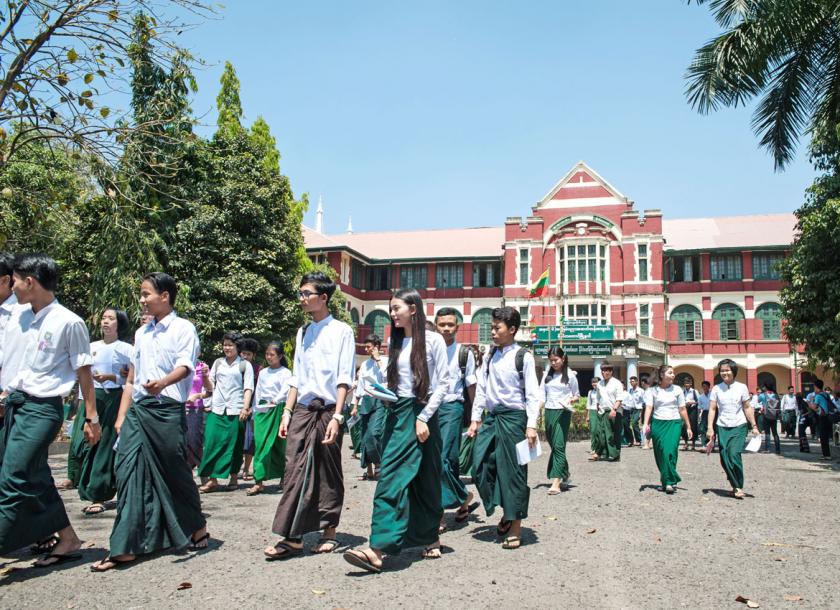
Myanmar Investment Commission (MIC) permits full foreign capital investments in private schools in Myanmar
The Myanmar Investment Commission (MIC) has permitted foreigners to make full capital investments in private schools in Myanmar, according to Notification 7/2018 issued by the MIC on April 20. This means foreigners will now be able to fully own and operate private schools teaching a curriculum prescribed by the Ministry of Education (MOE) or an international curriculum. International service providers will now be able to make investments in basic education schools, technical, vocational and training schools, higher education schools, subject-based schools and private schools designated by the MOE, according to the notification. The move is good news for local students, who will now be able to choose from more international education options, Daw Khin Hnin Soe, principal and director of Myanmar Metropolitan College, said. Even before the notification was released, foreign interest in the Myanmar education sector had been on the rise. Earlier this month, London-listed Myanmar Strategic Holdings (MSH) and Auston Institute of Management announced a joint venture to set up and operate a private school in Yangon. -
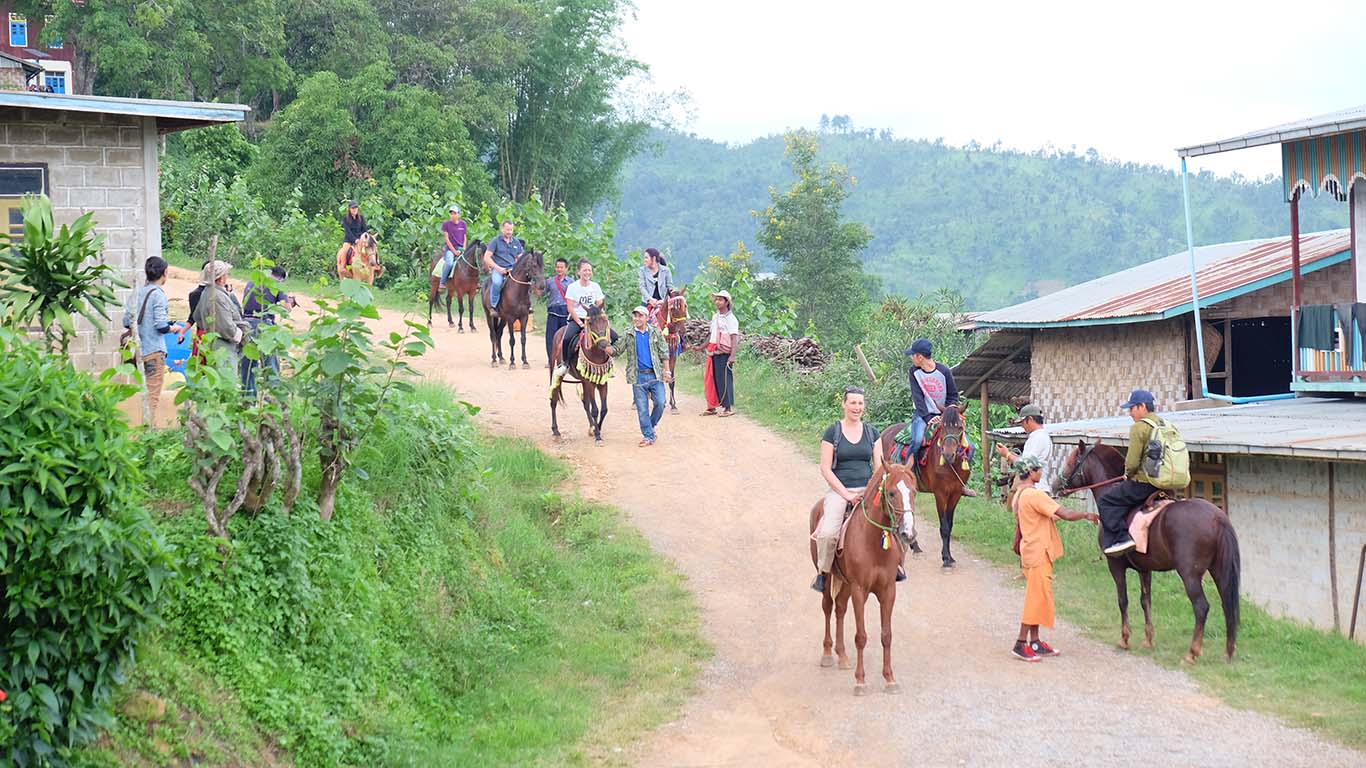
Over the past two years, the Ministry of Hotels and Tourism has closely cooperated with other government agencies and the private sector on tourism development: 2.9 million tourists and 3.44 million tourists visited Myanmar in 2016 and 2017, respectively
Tourism, the smokeless industry, contributes directly towards national economic development by earning foreign exchange, creating job opportunities and flowing cash directly or indirectly to all walks of life. Attraction, accessibility, accommodation and administration are the distinctive characteristics of healthy tourism. For development of Myanmar tourism industry, the Ministry of Hotels and Tourism is closely cooperating with related ministries, international tour agencies, development partners and private tour operators. The number of tourists visiting Myanmar has increased year after year, and according to data jointly collected with the Ministry of Labour, Immigration and Population, 2.9 million tourists chose Myanmar as their destination in 2016 and in 2017 the number hit 3.44 million. -
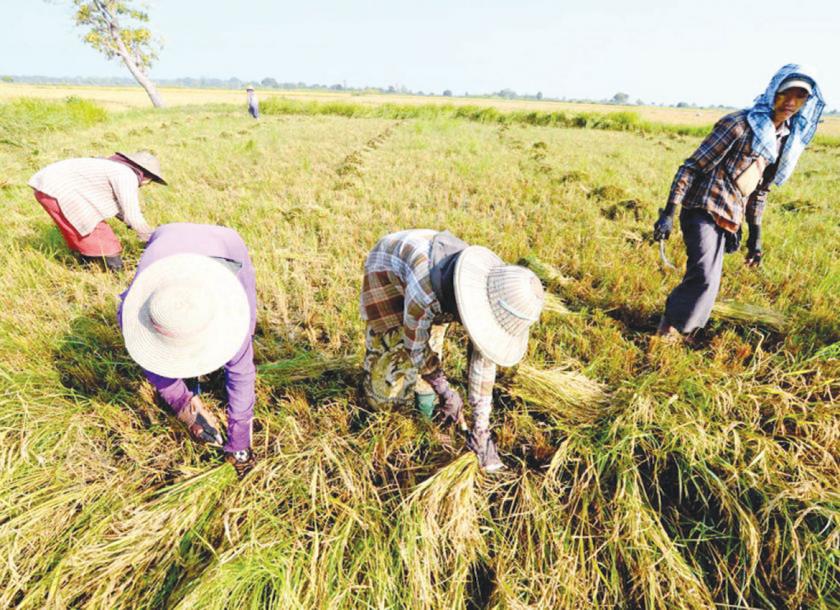
Ministry of Planning and Finance has approved a two year crop insurance project to protect farmers as a result of erratic weather conditions in Myanmar
The implementation of a recently approved crop insurance scheme to protect farmers in Myanmar, while urgently needed, will face challenges as stakeholders grapple with the risks and complexities. In January, the Ministry of Planning and Finance approved a two-year pilot crop insurance project aiming to cover damages to crops as a result of erratic weather conditions in Myanmar. The project, which will first be carried out on an experimental basis, is being offered by Global World Insurance, and will cover only paddy for now. It will commence this paddy season and cover the Yangon, Ayeyawady, Magwe and Mandalay regions. It is also the first time a crop insurance scheme is being implemented in the country. In Myanmar, insurance is mainly offered by state-owned provider Myanma Insurance and a smattering of private insurance companies. However, the existing portfolio of products and services does not include crop insurance. This is the case even though agriculture accounts for one third of Myanmar’s GDP, provides jobs for half the population and represents one fifth of the country’s exports. -
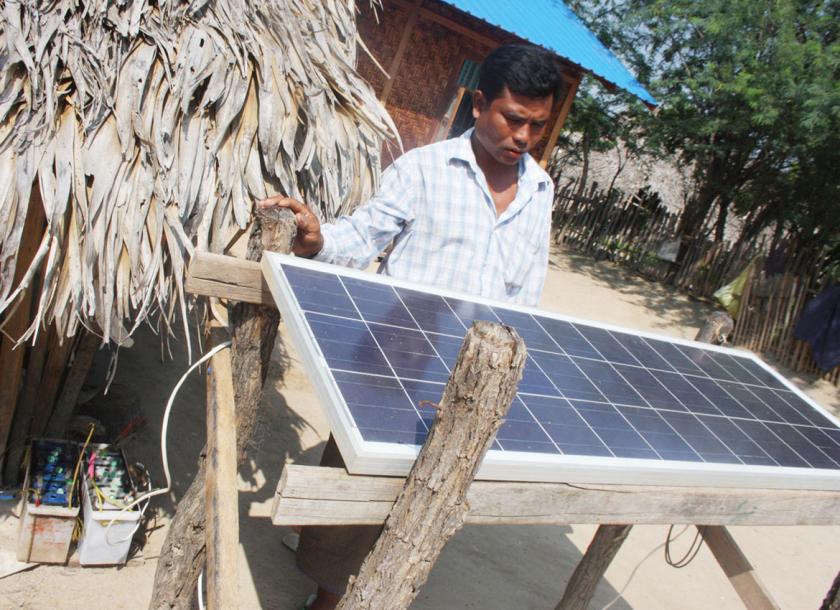
Insufficient public funds have been allocated to power generation and supply has consistently lagged behind demand despite the government's promise to fully electrify Myanmar by 2030
The government has promised to fully electrify Myanmar by 2030. Yet, insufficient public funds have been allocated to power generation and there are no immediate plans to restructure loss-making tariffs or charge more for electricity. One of the government’s top promises since it came into power is to supply electricity to the entire country by 2030. Yet, supply has consistently lagged behind demand. At the same time, the government continues to fund tariffs at a loss, and there are no immediate plans to raise electricity prices. Currently, there are around 6.5 million households, or some 40 percent of the population, which has no access to electricity. With more foreign investments needed to boost growthin power-intensive industries such as manufacturing and technology, electricity consumption will only increase in the years to come. Despite mounting pressure to meet growing demand though, public funds allocated towards developing and expanding the power sector has so far been insufficient. In fact, public spending has fallen over the last few years. -
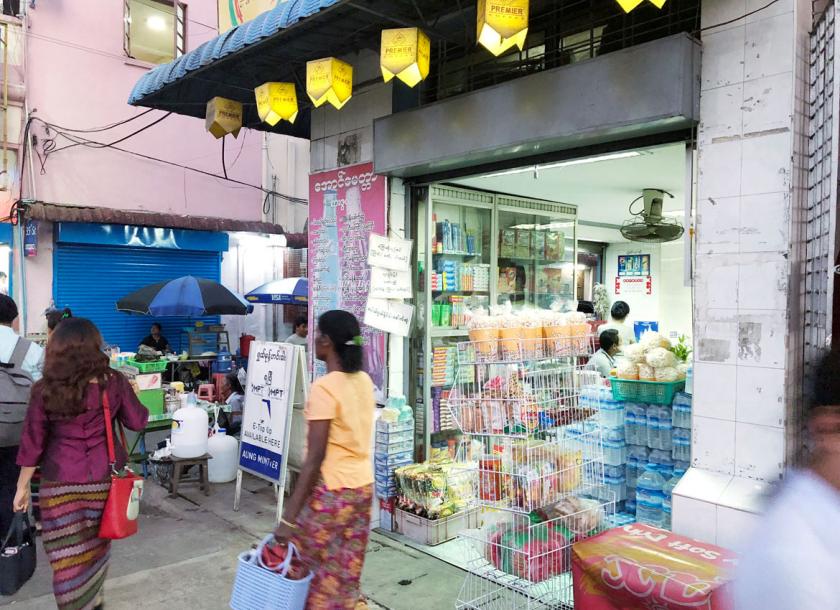
Small and Medium Enterprises (SMEs) need more funding, technology, and support systems to generate meaningful economic growth
Efforts to support small and medium enterprises (SMEs) over the past three years have so far not been sufficient to generate meaningful growth for the economy, experts said. While a higher volume of loans were dished out by state-owned and local banks, only a few SMEs have successfully expanded their operations in the past three years. “There were definitely efforts to help local SMEs, but none have been game changers so far,” said U Ngwe Tun, owner of local business Genius Coffee. The problem, he points out, is the lack of a support system that provides SMEs with assistance in gaining access to financing as well as technology, human resources and a framework setting basic standards of book keeping and governance. U Zin Phyo Paing, a trainer and consultant for local SMEs, said the other issue is financial management: “Giving loans alone is not enough. In fact, the hard part is how to manage debt and be able to repay it. Currently though, not many SMEs practice good debt management,” he said. -
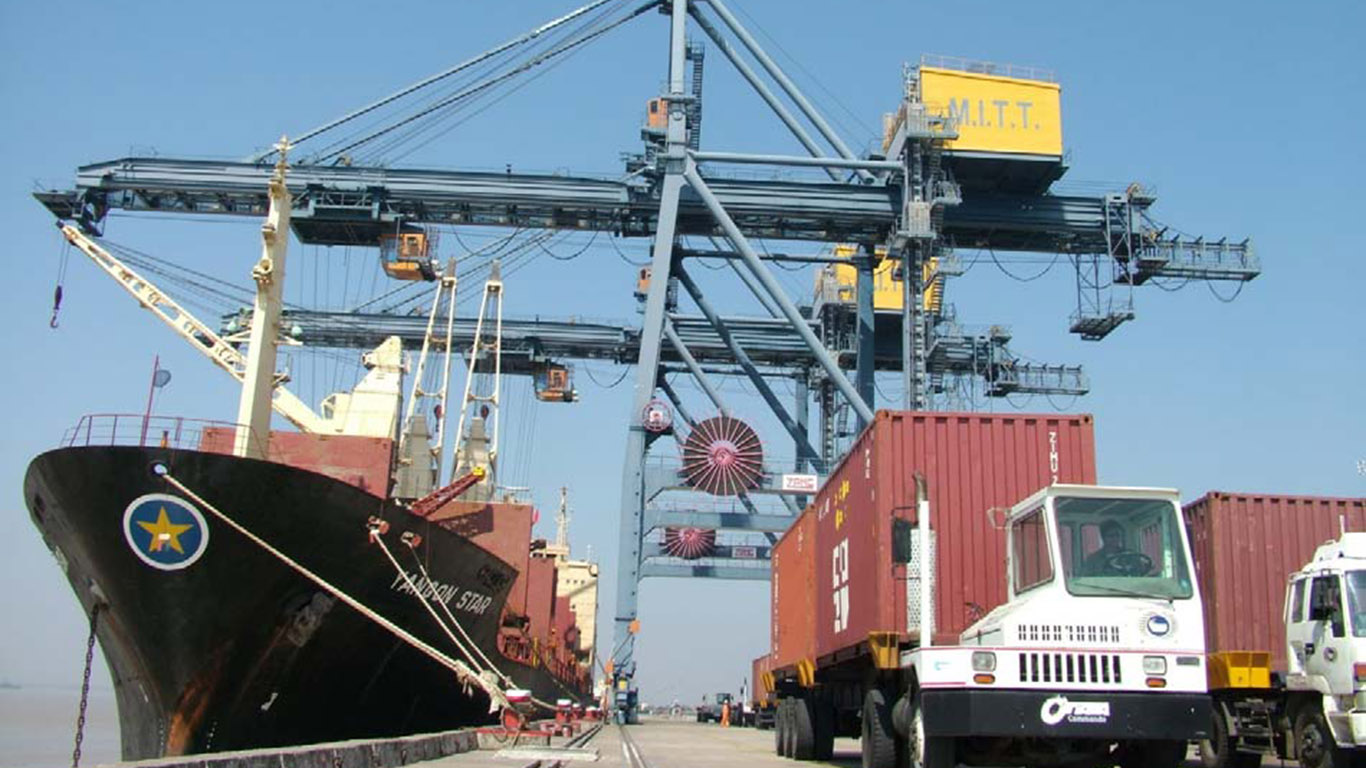
Exclusive interview with Union Minister of Commerce, Dr. Than Myint on the performance over two years by Ministry of Commerce
Myanmar rice export broke 70 years old record. Trading plays a vital role in the development of a country’s economy. As for the Ministry of Commerce, efforts are being made to transform the process of the implementation of the economic system. The following are some of the excerpts from the interview with Ministry for Commerce Dr. Than Myint. Q : Could you let us know what the aims and objectives of the Ministry of Commerce are? A : During the tenure of the new government, the state has laid down a 12-point-economic-policy which can foster the development of the country’s economy. In accordance with the state’s policy, the Ministry of Commerce has adopted 26 processes including Trade Promotion, Trade Facilitation, Trade Negotiation, Trade Liberalization, Trade Education and Consumer Protection, which can connect to other trading sectors. Q : Could you elaborate more about trading process in Myanmar? The main duty of the Ministry of Commerce is to boost the trading and develop the private sectors as well. It is important to increase the volume of foreign exports. -

In cooperation with the Economic Development Cooperation Fund from the Republic of Korea, Ministry of Transport and Communications plans to construct an e-government integrated data centre to boost the government's e-services
The Ministry of Transportation and Communications is set to construct an e-government Integrated Data Centre in cooperation with the Economic Development Cooperation Fund from the Republic of Korea to boost government e-services. Daw Nwe Ni Soe Yin, director of e-Government Department of the Ministry of Transport and Communications, told The Myanmar Times that the South Korean government has sent a draft agreement on the funding of the project. “In order to sign a mutual agreement, discussions are being carried out,” she said. After the discussions are completed, the cost of the project will be set.” The objectives of building the data centre are to upgrade and combine e-government services that are now being conducted separately by each department. This will ultimately lead to better online services.
เกาะติดข่าว
Copyright © 2014 Business Information Center All Rights Reserved.







